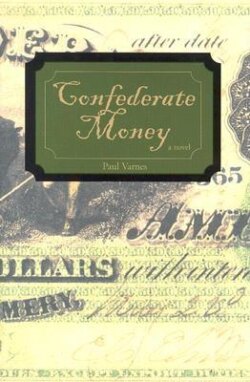Читать книгу Confederate Money - Paul Varnes - Страница 5
На сайте Литреса книга снята с продажи.
Author’s Note
ОглавлениеMany of the episodes in this novel of the Civil War are based on stories passed along in my family. Great-great-great-grandfather Isaac Varnes Sr. moved his family to Florida in 1823, twenty-two years before Florida became a state. (A military census estimated that less than 14,000 people lived in Florida in 1835.) Isaac Jr. married Louisa Ann Mettair, a Florida native of French descent whose parents, grandparents, great-grandparents, and great-great-grandparents date back to early-eighteenth-century Saint Augustine.
Isaac Sr., his son Isaac Jr., and his grandson Henry are designated Florida Pioneers. Isaac Jr. named his first son after Andrew Jackson, with whom his father had served in the First Seminole Indian War. Isaac Sr., at age fifty-five, fought also in the Second Seminole War, alongside all his sons and all of Louisa’s brothers.
Of the three sons of Isaac Jr. and Louisa’s who fought in the Civil War, two died in service to their country. Andrew Lewis Varnes died November 30, 1862, in Vicksburg, Mississippi, while he was a prisoner en route to a prisoner exchange. Isaac Varnes III died September 3, 1864, near Atlanta. Though seriously ill at the time, Isaac III was in the first wave of the Confederate charge at Jonesboro when he was killed. Isaac Jr. died in 1864 near Olustee, Florida. Louisa died in Lulu, Florida, in 1878.
Isaac Sr.’s fifth child, Henry, was born in Florida. The Florida Ninth Infantry Regiment, with which he served during the Civil War, was assigned to General Lee’s army. Henry served with Lee at Petersburg, Virginia, until August of 1864, when he was sent home due to chronic diarrhea with chronic dyspepsia and a degeneration of his arteries. He married Susanna Melissa Hunter in 1867. Isaac Jr.’s brother, George, also had two sons killed in the war, and another who lost an eye. Mercifully, Isaac Sr. had died in 1857 and did not see the war decimate his grandchildren.
All coming from large families, my eight great-grandparents had more than forty brothers and sisters. Most of these great-great uncles served, and many died, in the war. A number of their fathers and uncles also served in the war. Additionally, a half dozen men who married my great-great aunts served in the war.
Being from different parts of the country, or having different points of view, some of my ancestors served on different sides. Thus, it seems appropriate that the novel’s main characters serve both sides.
Florida contributed a larger percentage of its male population of military age to the Confederate military than did any other Confederate state. With forty percent dead and thirty-three percent wounded, Florida also took the heaviest losses of any state. Of the 15,000 from Florida who served the Confederacy, 6,000 died and 5,000 more were wounded.
Almost all of Florida’s units had been sent out of state by 1862 to fight in Tennessee, Georgia, and Virginia. Although they took large losses in several battles, Florida units took unusually large losses at Gettysburg. Several thousand men from Florida, black and white, also volunteered in the Union army. Since they enlisted in various Northern states, they were counted there, so there is no good record of the exact number.
While the above numbers seem small, it should be remembered that Florida had a small population. Pensacola, then the largest city in Florida, had only 2,886 people in 1860. Jacksonville, then the second largest city in Florida, had only 2,018. Dade County, the location of the town of Miami, and Monroe County, the county covering the Keys, combined had only 670 people.
